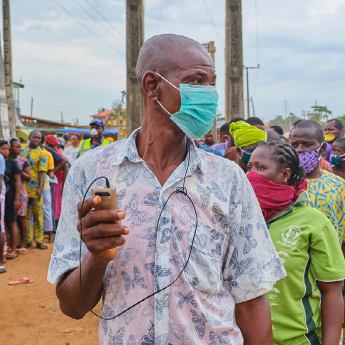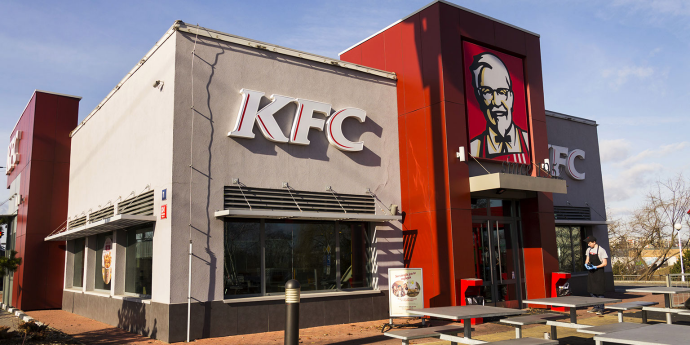The scramble to secure vaccine supplies during the COVID-19 pandemic has stress tested the global pharmaceutical supply chain. We’ve already seen how failures related to supply and quality issues can have very grave consequences in this industry. Earlier this year, for example, Johnson & Johnson had to dump 15 million doses of its one-shot vaccine after a batch produced in one US factory failed quality control checks.
Such incidences are all the more important to heed as developing countries aim to set up their own production facilities. Vaccination rates in Africa still lag well behind other parts of the world. By September this year, countries on the continent had managed to vaccinate only 3% of its 1.2 billion people, compared to vaccination rates of 50% in Europe, 44% in North America, 32% in Asia, and 33% in South America.
One reason for this is that Africa is able to manufacture less than 1% of all the vaccine shots administered on the continent. It has had to rely largely on donations and, some argue, unused stock from wealthy countries. It also leaves poor countries vulnerable to exploitative pricing.
Struggling to meet stringent production standards
The low capacity in Africa is the result of a spate of constraints, from civil unrest, lack of infrastructure, and a dearth of resources to gatekeeping from both states and multinational pharmaceutical companies. One major hurdle is that local manufacturers simply can’t, because of these impediments, meet the stringent national and global standards of Good Manufacturing Practice (GMP) for pharmaceutical production.
That’s where Lean manufacturing principles could make a difference. Commonly known as Lean, the approach can be traced back to the Toyota car factories of 1930s Japan, where manufacturers sought to provide continuity and efficiency throughout the production process. It took more than half a century for the ‘system’ to be codified, however, as it would be in two books in the 1990s: ‘The Machine That Changed the World’ (1990) and ‘Lean Thinking’ (1996). The process remains ubiquitous, including in Toyota’s factories in South Africa and other manufacturing sectors.
While interpretations may vary, as a rule, Lean seeks to eliminate waste at key points in the manufacturing process. This principle is encapsulated in the acronym DOWNTIME: Defects, Overproduction, Waiting, Non-utilisation of talent, Transportation, Inventory, Motion and Extra processing.
How a focus on less could mean more for African healthcare
Now new research is looking into whether Lean principles can be reconciled with GMP standards for pharmaceuticals, particularly in the production of the potentially billions of doses of COVID-19 vaccines. Fussing over production waste at a time of constrained supply may seem a pointless – even paradoxical – exercise, but ‘lean’ manufacturing principles may actually help African manufacturers raise their game at this critical time.
A recent study on a pharmaceutical company in Sudan for example, looked at which aspects of lean thinking could offer resource-constrained manufacturers in the developing world the means to improve its production processes. In this way, they could exploit burgeoning opportunities in ‘glocalisation’, that is, global cooperation between multinational companies (MNCs) and local producers and distributors. (Even though these arrangements have been rare and troubled in the current COVID context.)
The Sudanese company is of interest largely because despite its own, as well as sector- and country-wide constraints, it had prior to the COVID pandemic secured an ISO 9001 certification, an internationally recognised standard for Quality Management Systems. They managed to do so because they had, for some time, prioritised quality assurance founded on principles of lean thinking.
This means that throughout their production, they have adhered to the five principles of Lean: committing to value; working within teams to eliminate waste in the value stream of production; establishing a smooth flow in that production stream by empowering those in the teams; strengthening communication within teams through ‘pull scheduling’, such as involving team members in the scheduling of production times in response to customers ‘pulling’ products off the line (as compared to just producing en masse with little regard for demand); and pursuing quality and perfection by evaluating the production process as a whole.
Securing the supply chain
Of utmost importance are two particular factors in the Lean approach, and in this company’s processes. One, it had, very simply, committed itself to quality assurance. And two, it had built a culture of quality through an inclusive and participative change process in which it ensured that team members, who understand the processes better than managers and CEOs, had provided input into the production exercise.
The ISO 9001 certification was an immediate return for both the company and Sudan’s domestic pharma industry. Now, in the face of a global health crisis in which pharmaceutical supply is under threat, this achievement alone takes on greater relevance. As foreign direct investment is increasingly harder to come by, state coffers are depleted and import capacity is stifled, manufacturers in emerging countries will find that a Lean makeover of their internal processes can allow them to both increase capacity and ensure quality.
The pandemic has highlighted the need for a secure pharmaceutical supply chain. Lean processes can help secure that supply chain, and the supply of vital medicines where needed.
Hamieda Parker is an associate professor at the University of Cape Town Graduate School of Business (UCT GSB), where she lectures on topics such as supply chain management, operations and innovation. This opinion piece is based on a chapter written by Parker and Sudan-based researcher Amin Elbadawifor for an upcoming book Emerging Trends in Decision Sciences and Business Operations.








































